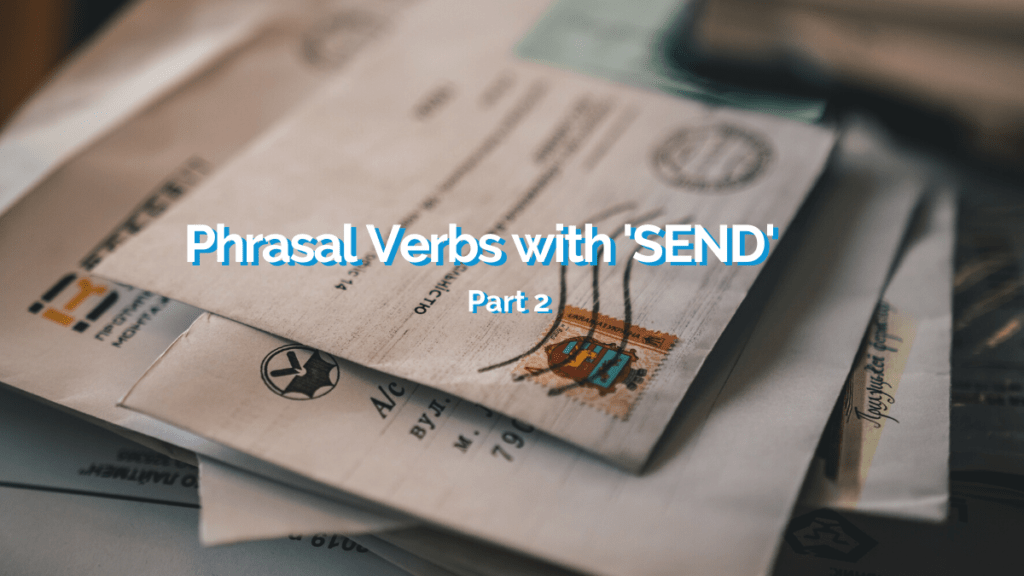Phrasal Verbs with ‘Send’ – Part 2

In English, we use phrasal verbs all the time. We use them to give commands, to express an opinion, to share stories.
Phrasal verbs consist of a root verb (such as go, put or set) and an adverb or preposition (such as away, on or out).
This blog explains the meanings of five common phrasal verbs containing the verb send.
Send off
There are three meanings to the phrasal verb ‘send off’:
- To post something to someone.
e.g. I want to send this application off today. / I’ve sent off the application.
- To arrange for someone to go somewhere.
e.g. We sent the children off to the zoo for the afternoon.
- To tell a sport’s player to leave the sports field.
e.g. She was sent off for arguing with the referee.
(Note: ‘Send off’ is also the name for a party or celebration to say goodbye to someone who is leaving a place. e.g. We wanted to give you a good send off.)
Send off for
- To write to a person or organisation asking them to send something to you/to order something by post.
e.g. I’ve sent off for details about the offer. / I sent off for some jeans that I liked in the catalogue.
Send out
There are three meanings to the phrasal verb ‘send out’:
- To send a lot of copies of the same document to a large number of people.
e.g. We sent out over 300 invitations to the party.
- To send something such as light, signals or smoke into the atmosphere.
e.g. The factory sends out toxic gases.
- To send someone to a place for a particular purpose.
e.g. Police sent out searchers to look for the missing men.
Send out for
- To order something and ask for it to be delivered to you.
e.g. I’m too tired to cook – let’s send out for pizza.
Send down
- To commit (someone) to a prison term
e.g. He was sent down for twelve years.
This content was written and recorded by Intrepid English Teacher Thomas.

You can find out more about Thomas on his Intrepid English Teacher Profile Page.
Book a free trial lesson today to discuss this topic in more detail, and talk about your English learning goals with an experienced and friendly native English teacher.
If you have any questions, or you would like to request a topic for a future blog, you can contact us using the chat box, send us an email, or even drop us a message on any of our social media channels.
Thanks for subscribing to our newsletter!








Responses